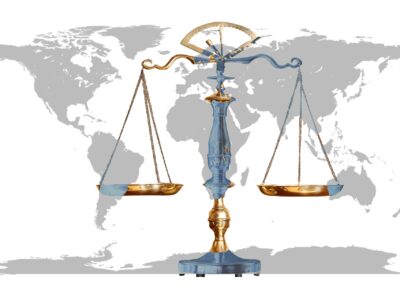

- TOP
- insights_news
- column
- What is renunciation of inheritance? Part 2
Insights & News
What is renunciation of inheritance? Part 2

<1. Abstract of Japanese Civil Code (“Minpō”)>
Article 915 (1)An heir shall give unconditional or qualified acceptance, or renunciation, regarding inheritance within three months of the time he/she has knowledge that there has been a commencement of inheritance for him/her; provided that this period may be extended by the family court at the request of an interested party or a public prosecutor.
Article 921 An heir shall be deemed to have made unconditional acceptance in the following cases:
(i) if an heir has made a disposition of the inherited property in whole or in part; provided that this shall not apply to an act of preservation or a lease that does not exceed the period determined in Article 602;
(ii) if an heir has not made qualified acceptance or renunciation of inheritance within the period of paragraph (1) of Article 915;
(iii) if an heir, even after having made qualified acceptance or renunciation of inheritance, conceals inherited property in whole or part, uses that property for him/herself, or failed intentionally to enter it in the inventory of inherited property; provided that this shall not apply after the acceptance of a person who has become an heir due to the renunciation of inheritance of the original heir.
Article 938 A person who intends to renounce inheritance shall make a statement to that effect to the family court.
<2. Until when should a heir take legal procedure?>

Continuing from last column, we would like to introduce a brief outline of renunciation of inheritance.
According to the Article 915 and 921 (ⅲ), a heir, who wants to relinquish his/her claim regarding inheritance, needs to take legal procedure within three months of the time he/she has knowledge that there has been a commencement of inheritance for him/her.
A heir, therefore, has to renounce inheritance within three months after he/she knows a commencement of inheritance in principle.
How about in cases where a child , who is a heir of first line of succession under Japanese law, renounces inheritance and deceased’s parents, who are heirs of second line of succession, obtain rights of inheritance?
The time that person’s heir comes to know of the commencement of inheritance for himself/herself, which is described in the Article 915 (1), is, in principle, considered to be the time that an heir comes to know of the fact that is a cause of the commencement of inheritance and the fact that he/she has become an heir due to that fact.
Therefore, the parents can renounce inheritance within three months after a heir of first line of succession renounces inheritance.
The next is that how about in cases where a heir realizes that a deceased owe a large amount of debt after the three months?
There is a possibility that the heir may renounce inheritance within three months after knowing the debt.
According to the legal precedent (see 1982 (O) No. 82, the judgment of the Second Petty Bench of the Supreme Court of April 27, 1984, Minshu Vol. 38, No. 6, at 698), if the heir meets some requirements, one example is that, in terms of the circumstance at that time, it was very difficult for the heir to investigate the assets including debt, the time period (three months) as mentioned in the Article 915 (1) should be counted from the time that the heir actually realizes all or part of the property to be inherited from a decedent, or ordinarily should realizes it.
Making the decision in this regard tends to be hard because you should refer to such details of Japanese law, practice and precedent, so that please consult with a Japanese lawyer.
<3. How does a heir renounce inheritance?>
A heir has to file an application for renunciation of inheritance to a family court in Japan, with necessary documents including a marriage certificate or birth certificate to establish relationship between a heir and deceased.
Please note that it is not enough for a heir to complete the renunciation even if a heir make a document regarding renunciation of inheritance and submit it to the third party, like a creditor. A heir needs to take the above legal procedure.
<4. How long does the process take?>
Under Japanese Civil Code, there is no description about how long does the process of renunciation of inheritance take, so we have to see a practical perspective.
Generally speaking, it needs to take about two or three months from filing an application to a family court to making a decision by judge on average, but it really depends on each case and a heir needs a time to collect necessary documents prior to the application.
As the above description outline, the area of renunciation of inheritance has tricky and practical issues, so if you have a need to consult with a Japanese lawyer, please do not hesitate to contact us.
Lawyer Ken Takahashi
Email: k-takahashi@kensei-law.jp
Disclaimer
1. The information provided on this Website is for general information purposes only, and the contents of this column are not intended to constitute legal advice. You should not rely upon the information on this Website to make legal decisions.
2. We will not be liable or in any way responsible for any loss, injury and/or damage arising or resulting from your access to or use of this column.
3. Please do not copy the contents of this column without our permission. Unauthorized copying prohibited.



